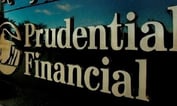FINRA has the not-inconsiderable powers of censuring brokers, imposing fines, ordering restitution to investors, suspending brokers and even barring them from the industry.
Is it now time to bar FINRA from the industry?
If that provocative question resonates with financial advisors, among whom the organization is not universally popular, that may only reinforce the thesis of a new research paper claiming that the industry self-regulatory organization (SRO) is not a true SRO, which would presumably enjoy its members’ wide support.
Indeed, Hester Peirce, a senior research fellow at George Mason University’s Mercatus Center argues in “The Financial Industry Regulatory Authority: Not Self-Regulation After All” that the organization exhibits “a troubling independence from government, industry and the public.”
How so?
“People think of FINRA as a self-regulator, and that brokers run it and that it’s accountable to brokers. But it’s not accountable to brokers and not accountable to the public” is how Peirce put in a phone interview with ThinkAdvisor.
“And it’s not adequately accountable to the [Securities and Exchange Commission],” she continued. “The SEC has some control, but FINRA sets its own budget and hires its own people outside of the purview of the SEC.”
Peirce adds that this “inadequately accountable operation” is actually growing in importance through an expansion of its role in securities markets and thus must now be held to account — either by folding it into the SEC or by transforming the institution into a true SRO.
The researcher at the free-market oriented Mercatus Center favors the latter.
“One approach would be to stop deluding ourselves and make this a governmental regulator,” Peirce said, “I don’t think that’s the best approach, given that the SEC also has its own problems.
“But the SRO model could be very effective at protecting the public,” she explained, “because you’re harnessing the most upstanding members of the industry to, acting in their self-interest, keep out the bad actors.”
(Peirce was once an SEC staff attorney and counsel to Commissioner Paul Atkins. She now sits on the SEC’s Investor Advisory Committee.)
In practice, Peirce says FINRA acts independently of, and in a sense is hostile to, the industry it ostensibly represents.
Her paper cites the organization’s governance as an example: “The board structure, which is intentionally weighted away from the industry, is not consistent with self-regulation. An organization run by a board that is dominated by people who are not in the industry is not an SRO; it is a regulator with industry representation,” it says.
What’s more, Peirce, who describes herself as a “big believer in procedure,” highlights weak mechanisms of institutional accountability.
For example, unlike governmental regulatory authorities that are designed to be accountable to Congress, the president and the public, FINRA does not have politically accountable directors or commissions — as does, say, the SEC — nor does Congress have oversight of its budget-setting.








 January 08, 2015 at 11:10 AM
January 08, 2015 at 11:10 AM










